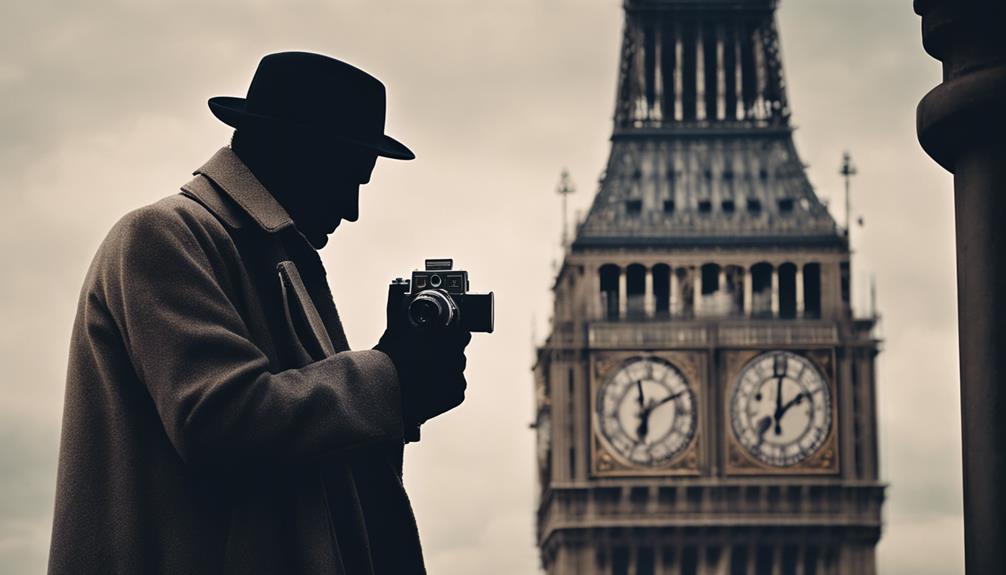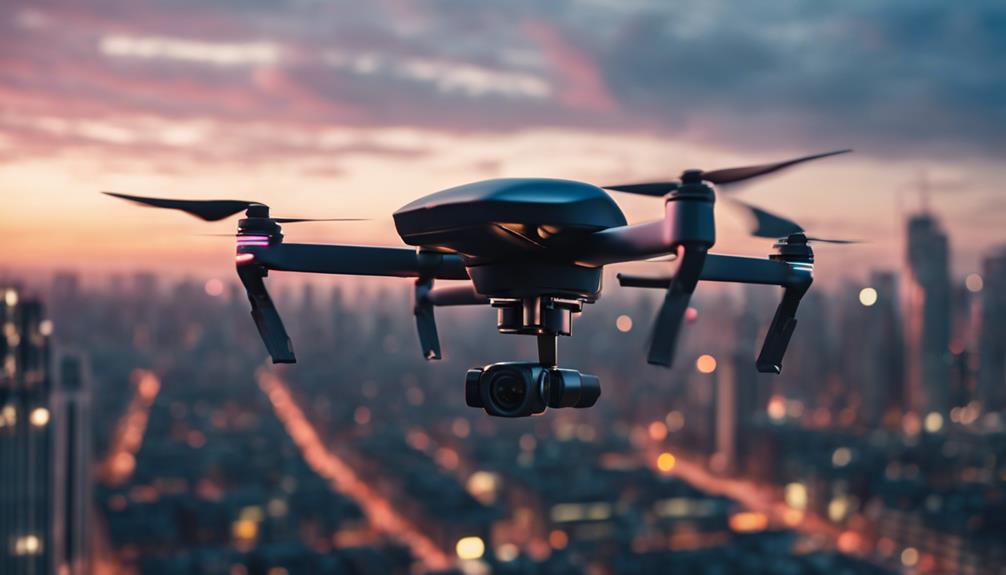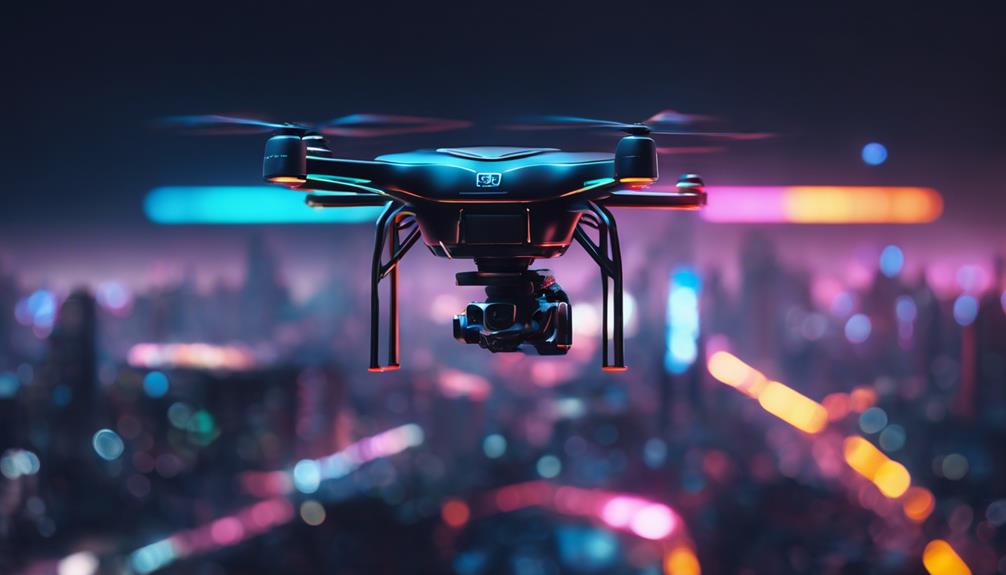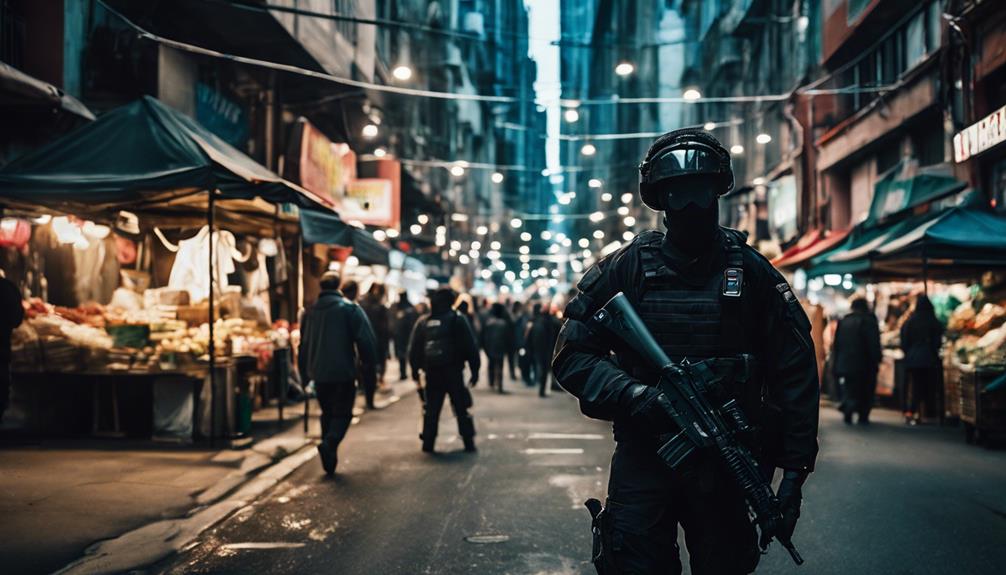
In an age where technology is ubiquitous, the use of spy cameras has surged, particularly in residential neighborhoods. While they are often perceived as tools for enhancing security, their implications extend into the realm of privacy and community dynamics. Neighbor spy cameras, in particular, have become a point of contention as individuals navigate the balance between safety and surveillance. This article explores the rise of these devices, their legal framework, and the ethical considerations surrounding their use in residential areas.
Understanding the Rise of Neighbor Spy Cameras Today
The increasing prevalence of neighbor spy cameras can be attributed to several factors, including rising crime rates, advancements in technology, and a growing emphasis on personal security. Homeowners are more vigilant than ever, seeking ways to protect their property and families. With easy access to affordable, high-definition cameras, many individuals feel empowered to monitor their surroundings more closely. Coupled with the pervasive influence of social media, where individuals often share their experiences of crime or suspicious behavior, the demand for surveillance has taken on new significance.
Additionally, the societal shift towards a more interconnected lifestyle has made it easier for neighbors to keep an eye on each other’s properties. Technology enables instant communication and sharing of information, making it possible to alert others about potential threats in real-time. However, this technological convenience raises ethical questions about privacy and consent, as neighbors become unwitting subjects of surveillance. As the line between security and invasion blurs, it’s essential to navigate this landscape thoughtfully.
Legal Considerations: Are You Allowed to Spy on Neighbors?
The legality of using spy cameras to monitor neighbors varies by jurisdiction, and understanding local laws is crucial before installing such devices. Generally, homeowners are allowed to install cameras on their property as long as they do not invade the privacy of others. This means that cameras should only capture footage of public areas, such as yards or driveways, without infringing upon someone’s private space. However, laws can differ significantly, with some regions enforcing stricter regulations regarding audio recording and video surveillance.
Moreover, it’s essential to consider the implications of capturing audio, as recording conversations without consent may violate wiretapping laws. Individuals must be aware of their local statutes and, when in doubt, consult legal advice to ensure compliance. This legal landscape serves as a reminder that while surveillance can provide peace of mind, it must be balanced with respect for others’ rights.
How Spy Cameras Affect Neighborhood Privacy Rights
The installation of neighbor spy cameras can lead to significant implications for privacy rights within a community. While these cameras may serve protective purposes, they can also create an atmosphere of mistrust among neighbors. The perception of being watched can alter social dynamics and hinder open interactions, as individuals may feel uncomfortable or anxious, knowing they are under surveillance. The psychological impact of constant monitoring can lead to divisions rather than the cohesion that neighborhoods ideally seek.
Additionally, the presence of spy cameras may set a precedent for increased surveillance in the community. If one person installs a camera, it might prompt others to follow suit, leading to a proliferation of surveillance technology that can infringe upon the privacy of residents. The resultant environment could foster a culture of suspicion where individuals are more concerned about being observed than building trusting relationships with their neighbors. In this way, the use of spy cameras can have ripple effects that extend well beyond the intended purpose of security.
The Pros and Cons of Using Spy Cameras in Your Area
Spy cameras offer several advantages that can enhance neighborhood safety. They can serve as deterrents against criminal activity, provide valuable evidence in the event of a crime, and foster a sense of security among residents. The ability to monitor one’s property remotely provides peace of mind, especially for individuals who travel frequently or have valuable assets at home. For some, the presence of cameras can create a community watchdog effect, where residents actively participate in maintaining a secure environment.
However, these benefits come with significant drawbacks. One of the main concerns is the potential for erosion of privacy rights, as individuals may feel uncomfortable knowing they are being recorded. Moreover, the misuse of collected footage can lead to harassment or stalking, exacerbating tensions among neighbors. The prospect of surveillance may discourage open dialogue, fostering an atmosphere of distrust and resentment. As such, communities must weigh the pros and cons carefully before adopting widespread surveillance measures.
Selecting the Right Spy Camera for Your Needs
Choosing the right spy camera involves assessing your specific needs and the environment in which you live. Start by determining the purpose of the camera—whether it’s for monitoring package deliveries, deterring vandalism, or ensuring the safety of children playing outside. The location is also crucial; outdoor cameras should be weatherproof and equipped with night vision capabilities, while indoor cameras can be smaller and less obtrusive. Understanding your requirements will help narrow down the options available.
Budget is another critical factor when selecting a spy camera. There is a wide range of price points, and while more expensive models may offer advanced features like cloud storage and smart home integration, there are still plenty of affordable options that provide reliable functionality. It’s advisable to read reviews and compare products to ensure you invest in a camera that meets your needs without breaking the bank. The right choice can enhance security while respecting the boundaries of privacy in your neighborhood.
Top Features to Look for in a Neighbor Spy Camera
When selecting a spy camera, there are several key features to consider that can significantly enhance its effectiveness. First, resolution is paramount; high-definition (HD) cameras provide clearer images, making it easier to identify faces or license plates. Additionally, look for cameras with motion detection capabilities, which can alert you to any unusual activity in real-time. This feature can help minimize unnecessary recording and conserve storage space.
Other important features include night vision, which enables surveillance in low-light conditions, and two-way audio, allowing you to communicate with anyone near the camera. Connectivity options, such as Wi-Fi compatibility and mobile app integration, can facilitate remote monitoring and control, providing greater flexibility. Ultimately, selecting a camera with the right features will enhance your ability to monitor your surroundings while addressing the needs of your neighborhood effectively.
How to Install a Spy Camera Without Being Obtrusive
Installing a spy camera requires strategic planning to ensure it serves its purpose while maintaining neighborly respect. Positioning is key; cameras should be placed to capture the desired area without invading private spaces. Opt for discreet locations that provide a clear view of your property, such as near doorways or garages, while avoiding direct sightlines into neighbors’ homes. This helps prevent discomfort and potential disputes.
Moreover, consider the aesthetic aspect of your installation. Many modern cameras come in designs that blend seamlessly with home exteriors, minimizing their visibility. Using camouflaged models or decorative enclosures can also help integrate the camera into the environment without drawing unnecessary attention. Thoughtful installation can alleviate concerns about being watched while still achieving the security benefits you desire.
Tips for Using Spy Cameras Responsibly and Ethically
To ensure that the use of spy cameras does not infringe upon the rights of others, it is vital to adopt responsible and ethical practices. First, notify your neighbors about the installation of cameras, particularly if they capture common areas. Open communication fosters transparency and can mitigate feelings of mistrust. Similarly, avoid recording audio unless absolutely necessary and ensure compliance with local laws regarding consent.
Additionally, establish clear boundaries regarding the use of recorded footage. Limit access to the footage to only those who need to know, and avoid sharing clips publicly without consent. Respecting privacy not only adheres to legal standards but also builds a more trusting community. By approaching surveillance with ethics in mind, you can contribute to a safer environment while maintaining good relationships with your neighbors.
Addressing Concerns: What to Do if You Feel Watched
Feeling watched can be disconcerting, leading to anxiety and tension within the neighborhood. If you sense that a neighbor’s spy camera is invading your privacy, it’s essential to address the situation calmly and directly. Initiate a conversation with the neighbor to express your concerns about the camera’s positioning and its impact on your sense of privacy. Often, open dialogue can lead to understanding and potential adjustments that respect everyone’s rights.
If discussions do not yield a satisfactory resolution, consider documenting your concerns and consulting local laws regarding surveillance. Depending on the situation, reaching out to a community mediation service or local authorities may also be necessary. Ultimately, fostering communication and seeking resolution through proper channels can effectively alleviate feelings of being watched while promoting a more harmonious neighborhood atmosphere.
Building Trust: Open Dialogue About Neighborhood Security
Establishing a culture of open dialogue regarding neighborhood security is vital for fostering trust and community cohesion. Organizing neighborhood meetings to discuss security concerns, share experiences, and collectively decide on the use of surveillance can help ensure that everyone feels heard and respected. Creating a community watch program, where residents collaborate on security measures while respecting privacy, can also be an effective way to enhance safety without resorting to excessive surveillance.
Additionally, promoting transparency in the use of spy cameras can build trust. Encourage neighbors to share their reasons for installing cameras and demonstrate their commitment to ethical practices. By working together, a community can develop strategies that enhance security while preserving individual privacy rights. This collaborative approach not only strengthens neighborhood bonds but also empowers residents to take an active role in fostering a safe and welcoming environment.
The emergence of neighbor spy cameras reflects a growing desire for security in an unpredictable world. While these devices can enhance safety, they also introduce complex questions about privacy, ethics, and community dynamics. By understanding the legal implications, selecting the right features, and fostering open communication among neighbors, individuals can strike a balance between surveillance and respect for privacy. Ultimately, a collaborative approach to neighborhood security can create an environment where residents feel safe and valued, ensuring that technology serves as a tool for protection rather than a source of division.





